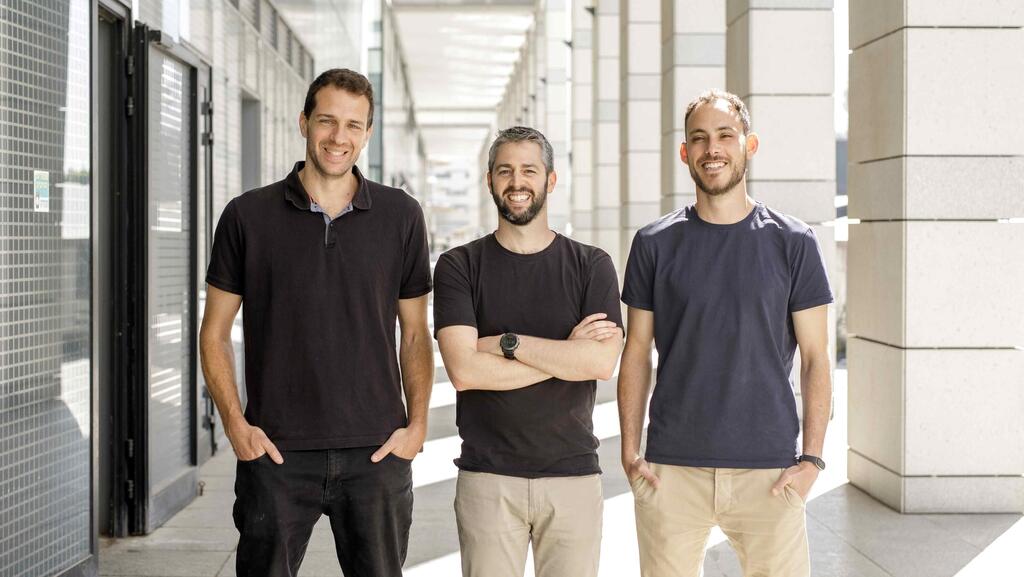
Converge Bio raises $5.5M in Seed funding to speed up drug discovery and development with GenAI
The Israeli startup's platform uses large language models (LLMs) trained on biological and chemical data (DNA, RNA, protein sequences, and small molecules) to help biotech and pharmaceutical companies discover and develop better-performing drugs in less time.
Converge Bio, a generative AI platform for accelerated drug discovery and development, announced on Wednesday that it has raised $5.5 million in Seed funding, led by TLV Partners. Converge Bio's platform uses large language models (LLMs) trained on biological and chemical data (DNA, RNA, protein sequences, and small molecules) to help biotech and pharmaceutical companies discover and develop better-performing drugs in less time.
Full list of Israeli high-tech funding rounds in 2024
Converge Bio was founded in 2024 by CEO Dov Gertz, CTO Oded Kalev, and Chief Scientific Officer Iddo Weiner. Gertz holds a master's in bioinformatics from Tel Aviv University, where he developed a machine learning pipeline to find new types of CRISPR systems used for gene editing. His research resulted in a scientific publication with Nobel laureate professor Jennifer Doudna. Kalev is an ML expert who previously managed an R&D Group of 20 engineers and ML experts at the cybersecurity company Perception Point. As an early adopter of LLMs, Oded applied these technologies during the COVID lockdowns to analyze RNA sequences of the virus, achieving state-of-the-art results in COVID variant clustering using his own GPU at home. Weiner, formerly VP of research at BiomX, completed his Ph.D. in engineering and biology in just two and a half years with ten peer-reviewed papers.
Developing new medications and biological products is a complex, lengthy, and costly endeavor. On average, bringing a new drug to market takes about 10 years and requires an investment of approximately $1 billion. The process is fraught with risk — 90% of candidates fail during clinical trials after significant investments have been made.
Generative AI has emerged as a powerful tool for drug discovery and development, with dozens of AI-discovered drugs currently in clinical trials. "Biological languages, like DNA and RNA, aren't just random sequences — they have intricate structures and rules, similar to the grammar and syntax of spoken languages," said Dov Gertz, co-founder and CEO of Converge Bio. "Just like how ChatGPT can instantly generate a string of words to answer a question, a model trained on biological data can help rapidly design optimized mRNA sequences for vaccines, cutting months or years from the process."
Related articles:
Converge Bio's platform provides a library of foundational models across all biological languages, that can be easily enhanced and fine-tuned for specific tasks with Converge Bio’s data enrichment pipeline. The platform offers a variety of generative AI-based solutions, such as engineering antibodies for improved specificity and reduced side effects, identifying novel drug targets, or designing mRNA vaccines optimized to elicit strong immune responses.
Converge Bio has partnered with some of the world’s largest pharmaceutical companies, including Teva, and cutting-edge drug discovery companies like Compugen and BiomX.
"Generative AI will transform every stage of drug discovery and development and our platform is at the forefront, allowing any pharma or biotech company to easily incorporate AI within their R&D pipelines," said Gertz. "We start by predicting biological outcomes, such as how well a potential drug might work. Then, we provide explanations for these predictions in biological terms that scientists can understand and trust. Finally, we use this knowledge to generate novel biological products, like optimized drug candidates. The models are pre-trained on vast amounts of data, so they can create significant insights even from minimal fine-tuning data."
